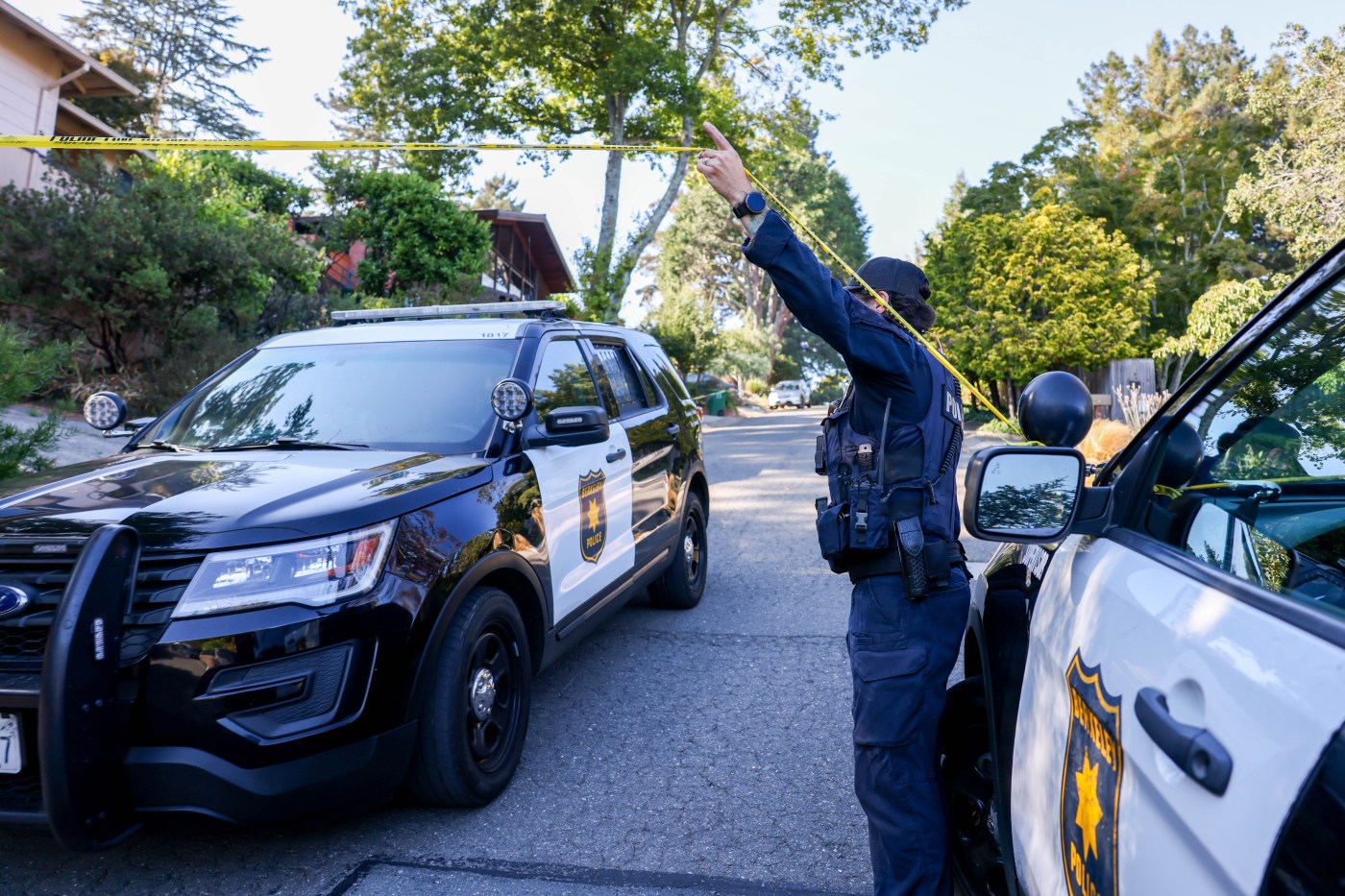
After weeks of technical hiccups, nearly every law enforcement agency across the East Bay has now silenced their police radios.
Before sunrise Wednesday, all but one Alameda County agency pulled public access to communications between officers and dispatchers, completing a region-wide shift toward secrecy that has prompted alarm among police accountability and First Amendment advocates.
And in a surprise move, the lone holdout — the Berkeley Police Department — may soon join them.
The process to “encrypt” radio channels faced multiple setbacks over the past two months, as technical glitches delayed an expensive, yearslong effort to end decades of open radio waves. Police radios in Contra Costa went silent last week, but a snafu kept police channels in Alameda County open to the public until Wednesday.
Berkeley city spokesperson Matthai Chakko said that the Berkeley City Council, as early as Oct. 28, will be asked to “encrypt Berkeley Police Department primary radio channels similar to every other jurisdiction in Alameda and Contra Costa County.”
The statement represents an about-face for the Berkeley Police Department, whose leaders told this news organization as recently as last week that they planned to go it alone and avoid the regional push toward encryption.
Any change would be a reversal from a policy the City Council passed in 2021 to “continue its practice of the primary channel being used in an unencrypted manner,” except in limited situations such as serving search warrants.
Berkeley’s apparent abrupt change of course came as a deep disappointment to Andrea Prichett, who helped found Berkeley Copwatch in 1990.
“They just totally abandoned their ‘reimagining policing’ perspective of five years ago,” said Prichett, referencing a movement to reform policing that arose after Minneapolis police officer Derek Chauvin murdered George Floyd in spring 2020. “This signals a retreat from collaboration with the community. And it really will contribute to lack of community trust.”
Other police accountability organizations, First Amendment advocates, local attorneys and a Bay Area state senator have all railed against the move by local police departments to shield their radio chatter. They have argued the movement flies in the face of transparency, while threatening the community’s ability to hold officers to account when they err on the job.
Law enforcement officials across the region say the secrecy is needed after a 2020 directive by the California Department of Justice ordered law enforcement agencies to work harder to protect certain private information, such as Social Security and driver’s license numbers of people contacted by police. The DOJ did not require wholesale encryption of police radio channels.
The Antioch Police Department helped pioneer the effort in 2015, shortly before multiple scandals ripped through the agency amid claims of widespread civil rights abuses, violent arrest tactics and racist policing. Three officers later pleaded guilty or were convicted at trial of either conspiracy or civil rights violations, while dozens of officers were placed on leave amid the discovery of years-long text exchanges that made frequent use of disparaging language in reference to Black people.
The California Highway Patrol’s Bay Area division also has yet to pull its conversations off the public airwaves, though the agency plans to do so at a yet-to-be-determined date.
Not every agency has gone to such measures. The Palo Alto Police Department reversed course after initially encrypting its channels — re-opening them to the public, after citing the ability to use other means to protect citizen’s private information mentioned in the 2020 directive.
Prichett said keeping police radio communications open to the public is key to ensuring residents feel safe in their communities. She called for a robust debate about Berkeley’s potential radio encryption, calling it “a real setback for police accountability.”
“It’s really important to police accountability in our city that we be able to hear radio traffic and identify locations where interactions are taking place,” Prichett said. “But the implications for journalists are pretty significant, as well as, public safety in general.”
“If I hear noise, I listen to the radio and pretty quickly, I can identify what’s going on,” said Prichett, adding that “the moves for transparency, the moves for community involvement and community safety are all meeting great pushback at this time.”
Jakob Rodgers is a senior breaking news reporter. Call, text or send him an encrypted message via Signal at 510-390-2351, or email him at [email protected].